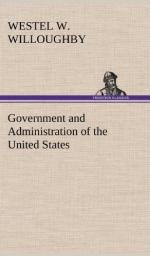CHAPTER V.
Steps Toward Union.—Articles of Confederation.
Previous to 1774 the thirteen English colonies in America had had no political or governmental connection with each other. Any attempt on their part to unite without the consent of the English King or Parliament would have been considered an act beyond their powers and as insubordination towards the English government.
_#New England Confederation.#_—In 1643 there was formed a union of the four colonies of Connecticut, New Hampshire, Plymouth, and Massachusetts Bay, termed the “New England Confederation,” which lasted forty years; but this was merely a union for mutual protection against their common foes, the French, the Dutch, and the Indians, and not for joint legislation or government. It was a defensive alliance.
_#The Albany Convention._#—(Franklin’s Plan.) In 1754, however, there was held a meeting of the colonies of New Hampshire, Massachusetts, Rhode Island, Connecticut, New York, Pennsylvania, and Maryland, called the “Albany Convention,” in which was proposed a union of all the colonies under one government. Benjamin Franklin, the chief promoter of this scheme, drew up an elaborate constitution which was to be adopted. According to this plan there was to be a chief executive, elected by the king, and a council of 48 members, to be chosen by the legislatures of the several colonies. This scheme failed to obtain either the consent of the king or of the colonies themselves. It was too much of a union to suit the king, and not enough for the colonies. _#The Stamp Act Congress.#_—The indignation aroused by the attempt of England to tax her colonies without allowing them a voice in the Parliament which imposed such taxes, gave rise in 1765 to a meeting of delegates from eight of the colonies. This assembly was called the “Stamp Act Congress.” The obnoxious Stamp Act was repealed, but England continued to impose other taxes.
_#First Continental Congress.#_—An invitation was sent out by Virginia to all the colonies, calling a meeting of delegates to consider what could be done by their united action to resist their common grievance. Thus met the “First Continental Congress” in 1774, in which all the colonies but Georgia were represented. This Congress adopted a declaration of rights and grievances. The colonies maintained that as long as they were unrepresented in the English legislature (Parliament), taxes should be imposed only by their own legislatures; also, that they were entitled to the rights, liberties, and immunities of free, natural-born subjects within the realm of England.




